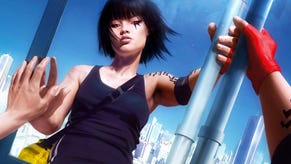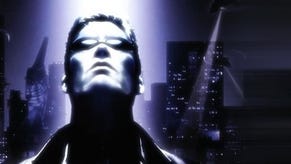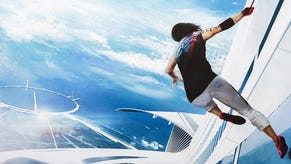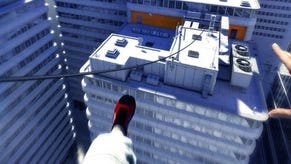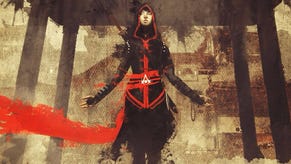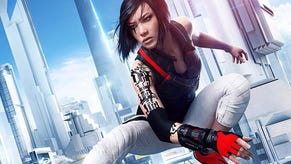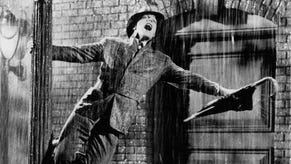Mirror's Edge
Faithful.
Visually the upgrade is equally seamless, with new lighting effects making the most of the sun's glare in the reflective glass of the sheer windowed buildings that stretch further above you into the deep blue sky. Thanks to NVIDIA's PhysX software, there are extra details like flappy plastic sheeting and cloth that catches the wind, or shreds under the weight of gunfire from pursuing helicopters. Textures have been improved too, glistening with surface detail, and the world has been filled out with incidentals like tumbling bricks, warped reflections in shiny pipes, and real-time fog and steam effects. It all sits prettily in an already handsome game-world of glaring concrete and breezy sunshine, which only troubled our GeForce 8800 GT-equipped 3GHz dual-core test machine in a few places, even running at 1900x1200. The only thing that looks out of place is the occasional shiny rat.
The PC version doesn't improve upon, but at least retains the console games' moreish Time Trials, too, complete with online leaderboards and quick and easy ghost downloads to race against. It uses the now-standard EA account (which I have no memory of signing up for, but discovered I do have), for which you can compile a Friends list, and EA has said it will release the promising new downloadable levels for the PC as well. The Achievements/Trophies are no longer included, with no obvious replacement, although you can still unlock a wealth of indifferent extras - artwork, anime cut-scenes and tunes.
What is a shame is that the PC conversion's few extra months' incubation haven't been used to address some of the more minor issues with the original game, like the "hint" key's uselessness indoors, and the occasional difficulty of jumping between pipes. But we can forgive these things for the improvement elsewhere in control and visuals.
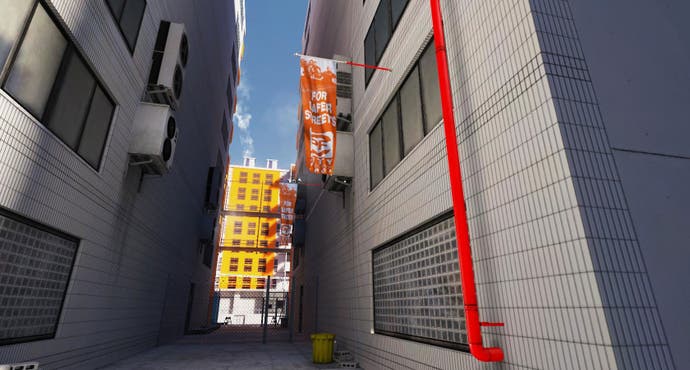
Which just leaves the game itself to measure up, and while it's undoubtedly a unique and special experience, what was true then is true now: level design isn't explicitly linear, but certainly stifles you, and often loses its way completely when it shelters from the game's epic blue skies indoors, and it's hard not to view the interference of gun-wielding "blues" as intrusive, while the story being told is perfunctory and occasionally aggravating, even if Faith herself is boldly flat-chested, bony and sympathetic when she's not speaking. It's also a short game, over in a couple of evenings, and the usual PC discount at online retailers is less meaningful now the console versions have been cut below it in some places.
For all its flaws, though, we're still in love. Mastering the game's in-body platforming is an urgent thrill, beaten down less violently here under the auspices of our old friends keyboard and mouse, and stands out from the homogenised interfaces of modern first-person and platform games. The quality of EA's 2008 output was a pleasant surprise almost throughout, but even among its several triumphs this is the only game confident enough to merely reward you with a heightened command of what you were already doing - and the only one where that more than sufficed.

